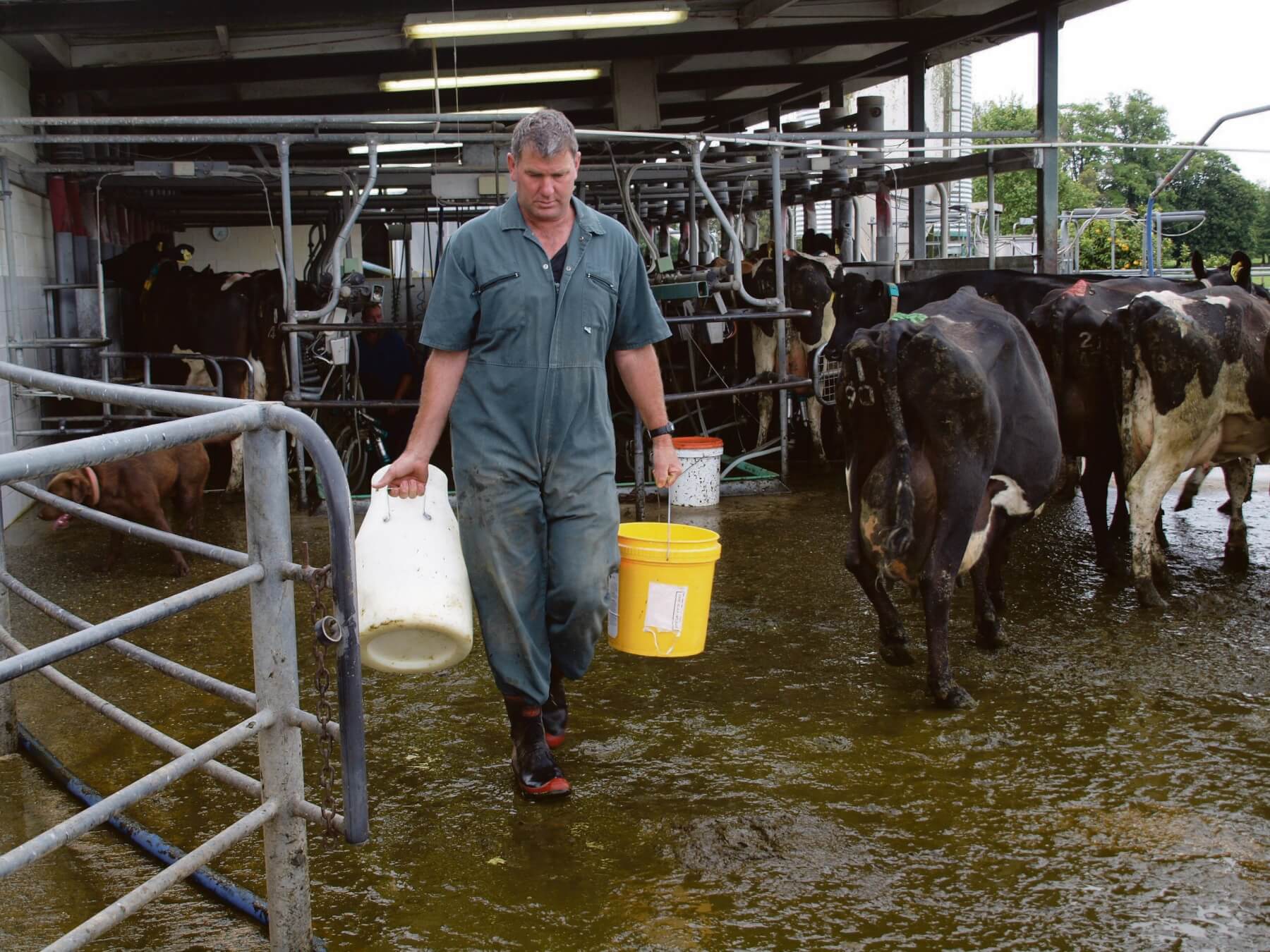
Waipa dairy farmer Garry Reymer on farm
Trade tariffs of up to 20 per cent on all imported goods could follow the re-election of Donald Trump to the presidency of the United States.

Waipa dairy farmer Garry Reymer
In a report going to Federated Farmers Waikato Executive this week, Economic and Finance chair Garry Reymer warns of the far-reaching implications Trump’s re-election could have on New Zealand’s primary sector.
Agricultural, horticultural and viticultural producers will all be impacted Reymer, the owner of two dairy farms at Cambridge and Kaipaki, warns.
“Our wine and meat exports to the US are significant and if they get hit with tariffs that Trump is proposing it will really be felt here at home,” he warned.
Trump’s protectionist policies could impact the whole order of international trade, including New Zealand’s key trading partners across the Asia Pacific region.
“If we overlay that with the growing power of the BRICs (Brazil Russia India China) grouping which is picking up new members all the time like South Africa, Iran and some other mid-east countries, the world is truly moving in a very different direction that we saw through the 70s 80s and 90s,” Reymer said.
“Our government, especially trade and foreign affairs, is going to have to fight hard to keep our ag exports in front of the world at good prices ensuring good returns to our farmer producers,” said.
Reymer said producers could add trade tariffs to a list of big issues threatening their business such as the behaviour of banks and the drive to decrease carbon emissions.
“The banking inquiry has a few key issues for me, one being the pricing of risk both by the trading banks themselves but also by the Reserve Bank. Two different risk assessments but both add cost to what we pay. The Reserve Bank being the biggest culprit here. Another question needs to be asked and that is why our banks are getting involved with scope three emissions? They sell money, they do not trade with other countries and do not produce goods. What is the rational of them demanding that we reduce our emission to remain bankable?”
“The world order is changing, free trade has peaked, and we are rapidly moving to an isolationist’s world where the rules of trade are being rewritten or just ripped up, but New Zealand can work and prosper in that world because we produce quality food at a competitive price. Energy security, border security and food security will be the drivers for the foreseeable future.”
Federated Farmers Waikato Executive members were to discuss Reymer’s report on Tuesday.

Waipa dairy farmer Garry Reymer on farm








